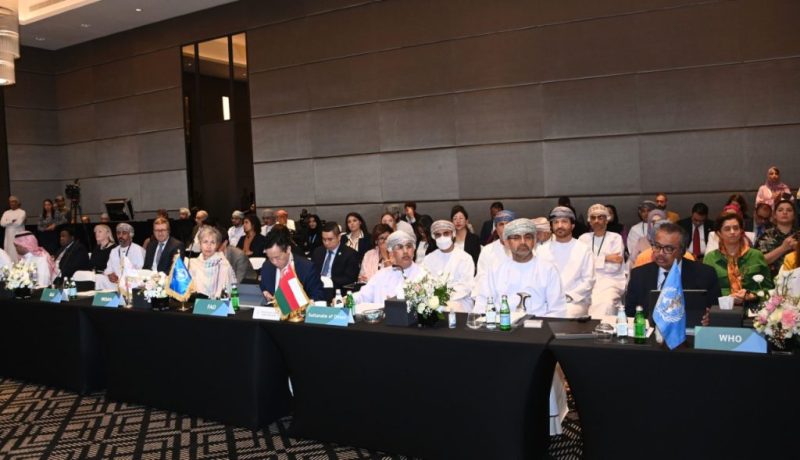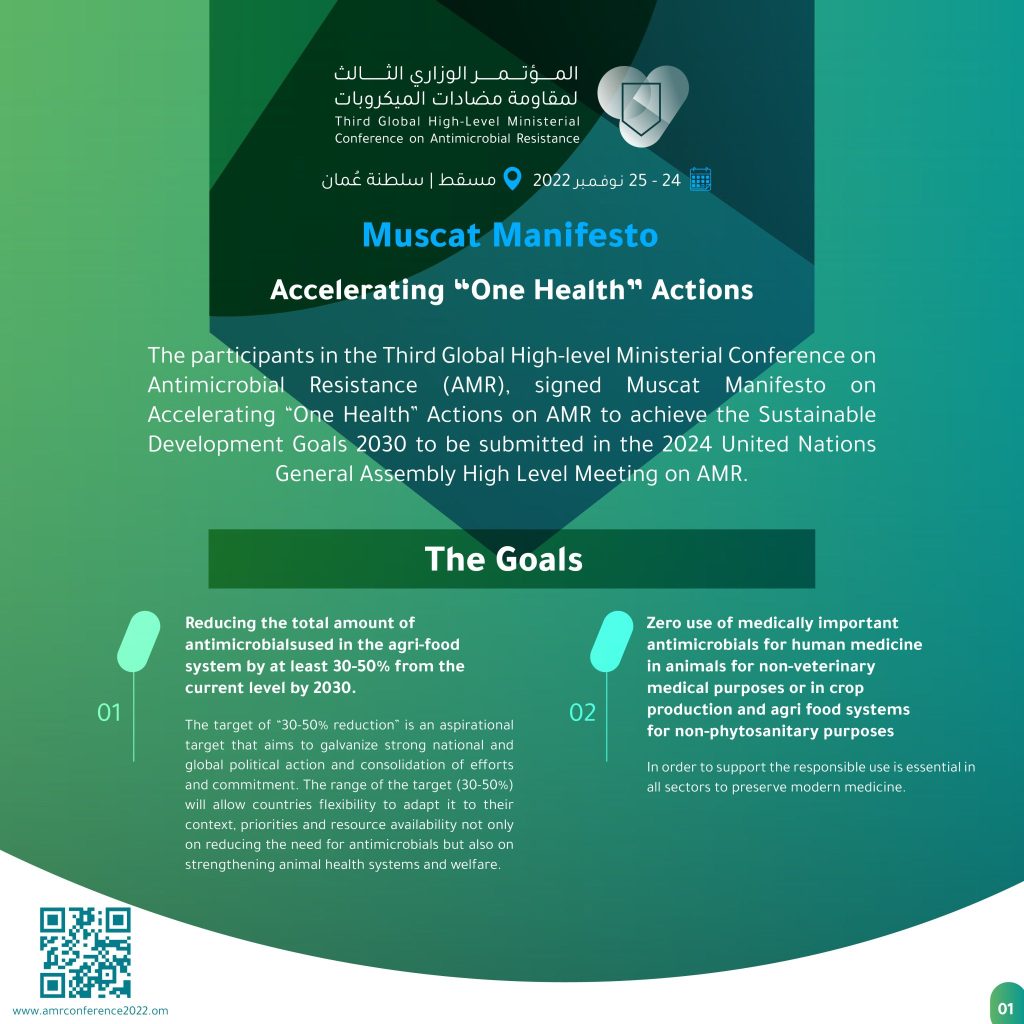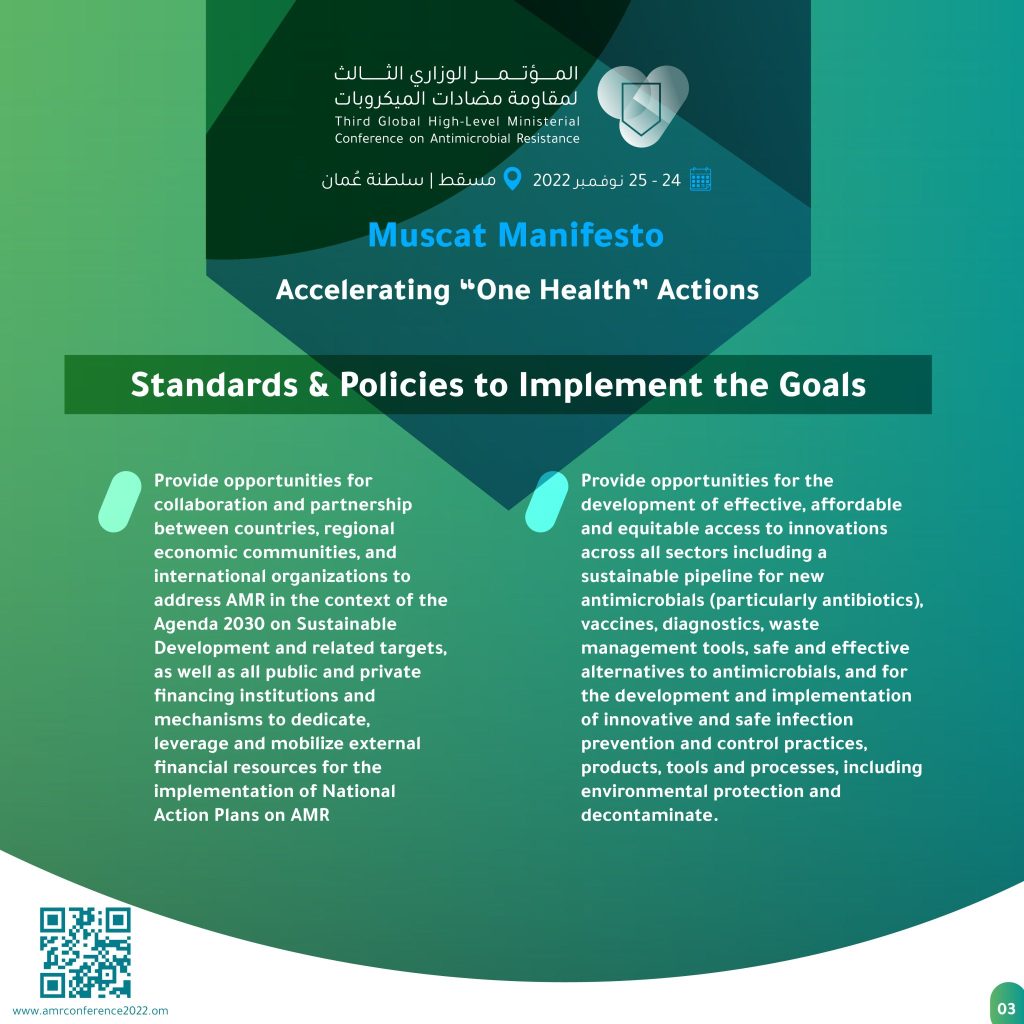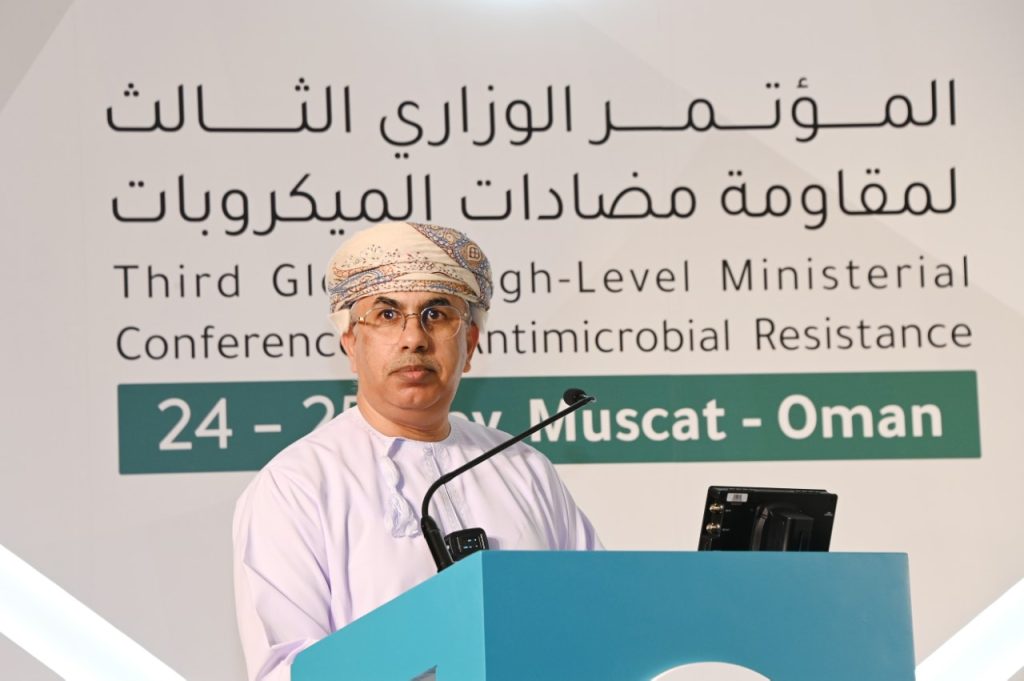
Global conference on antimicrobial resistance issues Muscat Manifesto
The Third Global Ministerial Conference on Antimicrobial Resistance concluded in Oman today, with the issue of The Muscat Manifesto, which aims to accelerate One Health actions on antimicrobial resistance to achieve the 2030 Sustainable Development Goals.

The participants, who included more than 30 ministers and representatives of more than 40 countries from around the world in the fields of human, animal and environmental health, adopted the Muscat Manifesto to commit to working towards achieving three goals.
The first of these is to reduce the total amount of antimicrobials used in the agri-food system by at least 30-50 percent from the current level by 2030. This ambitious goal seeks to stimulate solid political action at the national and global levels and unify efforts and commitment. The scope of this target will allow countries the flexibility to adapt it to their contexts, priorities and resources available, to reduce the need for antimicrobials and strengthen animal health and safety systems.

The second objective is that antimicrobials of medical importance for human medicine will not be used permanently in animals for non-veterinary medical purposes or in crop production and agri-food systems for non-phytosanitary purposes.
The third goal is to ensure that antibiotics included in the Access group make up at least 60 percent of total antibiotic consumption in humans by 2030.

The Muscat Manifesto declaration called on the four-way alliance formed by the United Nations, made up of the World Health Organisation (WHO), Food and Agriculture Organisation (FAO), the World Organisation for Animal Health (WOAH) and the United Nations Environment Programme (UNEP), and their joint secretariats concerned with antimicrobial resistance, to provide the necessary sectoral technical support and guidance in setting standards and policies to implement these goals and procedures. This includes the administrative boards of these organisations setting the relevant provisions and the concerned authorities working in related human and animal health and fields.

The Manifesto also called on all concerned parties to support and provide appropriate opportunities for cooperation and partnership between countries, regional economic communities and international organisations. It calls on them to address antimicrobial resistance in the context of the 2030 Agenda for Sustainable Development and related goals. It also calls on all public and private financing institutions and mechanisms to allocate financial resources. It also call for external resources to be utilised and mobilised to implement national action plans on antimicrobial resistance.
The meeting approved the request of the Kingdom of Saudi Arabia to host the work of the Global Ministerial Meeting on Antimicrobials at its fourth session.

In a speech to the conference, Dr Hilal Al Sabti, Oman's Minister of Health, said the Conference had achieved a very fruitful dialogue on antimicrobial resistance. He added that the results of the conference would enhance the ongoing dialogue on One Health measures in the period leading up to the relevant high-level meeting of the United Nations General Assembly on antimicrobial resistance in 2024.
Dr Al Sabti said that the conference discussed critical challenges and solutions regarding antimicrobial resistance, including the necessary political measures to make progress in implementing national action plans. He added that the Muscat Manifesto will help accelerate political action and coordination among sectors, countries and organisations.
For his part, Dr Saif Alabri, Director General of Disease Control and Surveillance at the Ministry of Health and Chairman of the Conference's Organising Committee, confirmed that 34 countries participating in the conference had adopted the Muscat Declaration and that the door will be open for another month for other countries to adopt the Declaration or express their opinion on it.
The conference was organised by the Sultanate of Oman represented by the Ministry of Health and the Ministry of Agriculture, Fisheries and Water Resources in cooperation with the GCC Health Council and the Quartet formed by the United Nations to monitor antibiotic resistance.
This is an unofficial English translation of the original Arabic text. To view the official Arabic text, click here.





